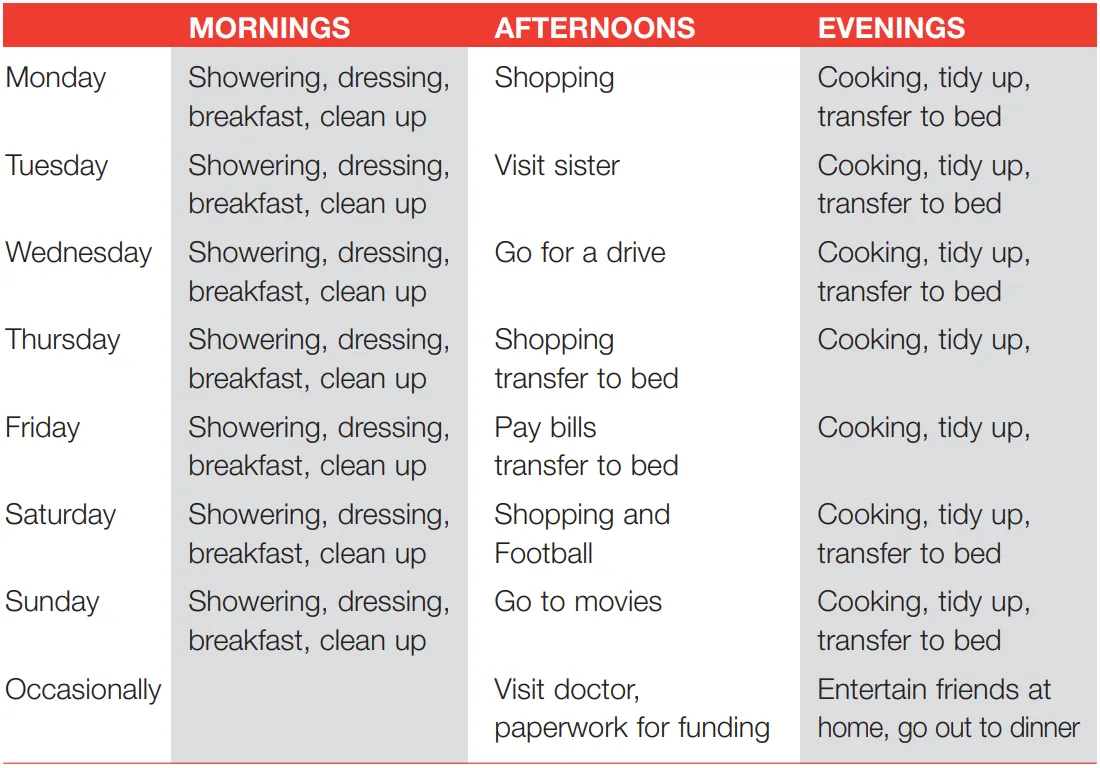Job Description
Website Designer Job Description: Duties and Responsibilities

Are you interested in a career in website design? As a website designer, you will be responsible for creating and maintaining visually appealing and user-friendly websites. This job requires a combination of creative and technical skills, as well as the ability to work collaboratively with clients and other team members.
One of the key responsibilities of a website designer is to create a website layout that is both visually appealing and easy to navigate. This involves selecting the right color scheme, fonts, and graphics to create a cohesive look and feel. Additionally, website designers must ensure that the website is optimized for search engines and that it is mobile-friendly, as more and more people are accessing the internet through their smartphones and tablets.
Website Designer Job Description:
Just like graphic designer job description, a website designer will be responsible for creating visually appealing and user-friendly websites that meet the needs of clients. Your main focus will be on designing and developing websites that are both functional and aesthetically pleasing. This role requires a strong understanding of design principles, web development technologies, and user experience.
Position Purpose:
As a website designer, your primary purpose is to create and maintain websites that meet the needs of clients. You will work closely with clients to understand their requirements and develop websites that meet those requirements. You will also be responsible for ensuring that websites are user-friendly, visually appealing, and optimized for search engines.
| Also Read: How AI Can Help You Land Your Dream Job? |
Website Designer Key Responsibilities:
Your key responsibilities as a website designer will include:
- Designing and developing websites that meet the needs of clients
- Collaborating with clients to understand their requirements and develop websites that meet those requirements
- Creating visually appealing and user-friendly websites that are optimized for search engines
- Ensuring that websites are responsive and work well on all devices
- Staying up-to-date with the latest web development technologies and design trends
- Testing websites to ensure that they function properly and are free from errors
In this role, you will need to have excellent communication skills, as you will be working closely with clients to understand their needs and develop websites that meet those needs. You will also need to be creative and have a strong eye for design, as you will be responsible for creating visually appealing websites that are both functional and user-friendly.
Skills and Qualifications:
If you want to become a website designer, you need to have a certain set of skills and qualifications. In this section, we will discuss the educational requirements, professional skills, and personal qualities that are necessary for this job.
Educational Requirements for Web Designer:
To become a website designer, you need to have a degree or diploma in a related field such as graphic design, web design, or computer science. A degree in these fields will provide you with the knowledge and skills needed to design and develop websites. Additionally, you should have a good understanding of programming languages such as HTML, CSS, and JavaScript.
Professional Skills:
As a website designer, you should have excellent design skills and be able to create visually appealing websites. You should also be proficient in using design software such as Adobe Photoshop, Illustrator, and InDesign. Furthermore, you should have a good understanding of user experience (UX) design and be able to create websites that are user-friendly and easy to navigate.
Personal Qualities:
In addition to the technical skills, website designers should have certain personal qualities that are essential for success in this field. You should be creative, detail-oriented, and have excellent problem-solving skills. You should also be able to work well under pressure and meet tight deadlines. Finally, you should have good communication skills and be able to work effectively in a team.
In conclusion, becoming a website designer requires a combination of technical skills, educational qualifications, and personal qualities. With the right training and experience, you can develop these skills and become a successful website designer.
| Also Read: 12 IT Jobs That Don’t Require Coding Skills |
Work Environment:
As a website designer, you will spend most of your time working in an office environment. This means you will be sitting at a desk for long periods of time, staring at a computer screen. However, some website designers may work remotely, giving them the flexibility to work from home or other locations.
Physical Demands:
The physical demands of a website designer job are relatively low. You will spend most of your time sitting at a desk and using a computer, so you won’t need to do any heavy lifting or strenuous physical activity. However, it’s important to take regular breaks and stretch to avoid eye strain, back pain, and other health issues related to sitting for long periods of time.
Work Schedule:
Website designers typically work full-time, which means you will be working 40 hours per week. However, some website designers may work longer hours or have to work on weekends or evenings to meet project deadlines. If you work remotely, you may have more flexibility with your schedule, but you will still need to be available during regular business hours to communicate with clients and team members.
Overall, the work environment for a website designer is comfortable and low-stress, but it’s important to take care of your physical and mental health to avoid burnout and other issues related to sedentary work.
Website Designer Working Hours:
You can expect a standard workweek of around 37 to 39 hours.
Website Designer Annual Salary:
| Beginner: | £18,000 |
| Experience: | £40,000 |
Application Process of Web Designer:
Once you have found a website designer job that interests you, it’s time to begin the application process. Here are some steps you can take to ensure you have the best chance of getting hired:
- Review the job description carefully: Make sure you understand the requirements and responsibilities of the job. This will help you tailor your application to the specific needs of the employer.
- Update your resume and portfolio: Your resume and portfolio should showcase your skills and experience relevant to the job. Make sure they are up-to-date and accurately reflect your abilities.
- Write a compelling cover letter: Your cover letter should highlight your relevant experience and explain why you are interested in the job. Be sure to customize your cover letter for each job you apply for.
- Submit your application: Follow the employer’s instructions for submitting your application. This may include submitting your resume and cover letter online or through email.
- Prepare for interviews: If you are selected for an interview, make sure you are prepared to discuss your experience and skills in more detail. Research the company and the job so you can ask informed questions during the interview.
Remember, the application process can be competitive, so it’s important to put your best foot forward. By following these steps, you can increase your chances of landing your dream website designer job.
Visit Here for Information on Web Designer Jobs
Job Description
Dental Assistant Job Description: Education, Skills, Salary, Working Hours

Dental Assistant is a person who works under the supervision of dentists. He/she is responsible of wide range of duties. It is a very good job with wider scope but at the same time becoming a dental assistant requires a number of skills. So here in this article, I am going to give detailed information about this career.
Dental Assistant Job Description:
Dental Assistant Job Overview:
Dental assistants are vital members of the dental care team, providing chair-side support to dentists during procedures, assisting with patient care, educate them on oral hygiene practices, and keeping the dental office running smoothly. With an aging population and increasing focus on oral health, the demand for dental assistants is expected to grow.
Dental Assistant Job Duties and Responsibilities:
- Duty to take good care of patients
- Responsibility to keep the tools and equipment sterilized
- Responsibility of taking X-rays of patients
- Duty to provide all the necessary material and tools to the doctor during the whole process of treatment
- Responsibility to apply anesthetic to mouth of patient before the treatment starts
- Responsibility to acquire and maintain dental records of patients
- Duty to guide patients about dental care
- Duty to take out stitches
- Obtaining medical history of the patients and record it for the doctors reference
- Duty to make the patients feel comfortable during the treatment
- Responsibility to make the schedules of appointments
- Duty to answer the phones, send bills and maintain all the records
- Scheduling appointments
Dental Assistant Educational Requirements:
The students, who are interested in adopting dental assistant as a career, must earn a diploma or degree in dental assisting, or take a distance learning certificate program to learn the basics. As far as training is concerned, students may get the required skills by receiving training from the programs related to dental assistance. You can start as a trainee dental assistant and learn basic duties. To become fully certified, you’ll eventually need to complete a course approved by the relevant Dental Council.
| Also Read: How to Prepare for Remote Interviews? |
| Also Read: Is it Easy to Get a Nurse Job in the UK? |
Other Requirements:
Dental assistant must be a reliable and trustworthy person having good manual agility. He must be capable of making good rapport with others. Dental assistants are required to be registered by the state and also require passing practical and written tests. Such dental assistants, who have to do radiological processes, require passing Radiation Health and Safety exams.
How to Get Dental Assistant Job:
Do you know that more than 80 of CVs are only fit for the dustbin. If you want to get a job as dental assistant, then write a good CV first. If you don’t know how to write it then, take help from dental assistant resumes available on different good and reliable websites.
Then apply for the job by dropping your resume in hospitals, dentists’ offices or private clinics. If you are interested in government job, you will have to pass the civil service test. You can also search on job boards like Indeed, Reed, and social media sites like LinkedIn.
Chances of Promotion:
With experience, dental assistants may be promoted to the designation of supervisor of other assistants. They can also become dental laboratory technicians or dental hygienist, if they attend further dental courses.
Working Conditions:
Working conditions are quite comfortable and nice because most of the dental clinics are clean and calm. In their job, dental assistants may have to deal with different kinds of patients. Keeping them calm and contented is a demanding task which a dental assistant has to perform. Moreover, he has to deal with some delicate and at the same time dangerous equipment’s like X-ray machines, so he or she has to be very careful. In order to protect themselves from mishaps, dental assistants must wear gloves, masks, eyeglasses and protecting clothes so that they can prevent themselves from contagious diseases.
Dental Assistant Average Annual Salary:
| Beginner: | £20,000 |
| Experience: | £31,000 |
Dental Assistant Working Hours:
You can expect a standard workweek of around 38 to 40 hours.
Overall, a dental assistant’s job description involves a combination of administrative tasks and patient care duties. It is a rewarding career for individuals who are passionate about oral health and enjoy working in a healthcare setting.
Job Description
Support Worker Job Description: Qualifications, Skills, Salary, Working Hours
Support Worker job role is a vital part of the healthcare industry and involves providing assistance to people who need help with their daily tasks. As a support worker, you will be responsible for ensuring that your clients are able to live as independently as possible, while also receiving the care and support they need.
The job description for a support worker can vary depending on the specific needs of your clients. However, some common duties include helping with personal care, such as bathing and dressing, providing medication reminders, preparing meals, and assisting with household tasks. You may also be responsible for accompanying your clients to appointments or social events, and providing emotional support and companionship. It’s a challenging but rewarding job that requires compassion, patience, and excellent communication skills.

Support Worker Job Description:
Purpose of Position:
As a Support Worker, your main purpose is to provide assistance and support to individuals who require help with daily activities due to physical or mental disabilities. This may include tasks such as personal care, meal preparation, medication management, and transportation.
Your role is crucial in helping individuals maintain their independence and quality of life. You will work closely with clients to identify their needs and preferences, and develop care plans that meet their individual requirements.
| Also Read: 5 Simple Job Hunting Tips for Fresh Graduates |
| Also Read: Advice for Safe Job-Seeking in the UK |
Support Worker Key Responsibilities:
Your key responsibilities as a Support Worker include:
- Providing personal care, such as bathing, dressing, and toileting
- Assisting with meal preparation and feeding
- Administering medication as prescribed by healthcare professionals
- Accompanying clients to appointments and social activities
- Monitoring and reporting any changes in clients’ health or behaviour to healthcare professionals
- Maintaining accurate records and documentation of care provided
In addition to the above, you may also be required to provide emotional support and companionship to clients, and assist with household tasks such as cleaning and laundry.
What I Do?

How I Behave?

As a Support Worker, you will be expected to work independently and as part of a team, and to communicate effectively with clients, their families, and other healthcare professionals. You will need to be compassionate, patient, and understanding, with a genuine desire to help others.
Support Worker Skills and Qualifications:
Essential Skills:
To excel as a support worker, you need to have a variety of essential skills that will enable you to provide the best possible care for your clients. These include excellent communication skills, both written and verbal, as well as the ability to work well in a team environment. You should also have strong interpersonal skills, be able to remain calm under pressure and have a non-judgemental attitude.
Another essential skill is the ability to be flexible and adaptable to changing situations. You should also have good time management skills, be able to prioritise tasks effectively and have a keen eye for detail. It is also important to have a good understanding of confidentiality and safeguarding.
Desired Qualifications:
While there are no specific qualifications required to become a support worker, there are some that are considered desirable. These include a Level 2 or 3 Diploma in Health and Social Care or a related field. A qualification in first aid and/or medication administration would also be beneficial.
In addition, a good understanding of mental health issues, learning disabilities and/or autism would be advantageous. Work experience with vulnerable adults and/or children would also be desirable.
Overall, having a combination of essential skills and desired qualifications will help you to provide the best possible care for your clients as a support worker.
| Also Read: Is it Easy to Get a Nurse Job in the UK? |
| Also Read: Which Courses Have the Best Job Opportunities in the UK? |
Working Conditions and Environment:
Workplace Setting:
As a support worker, you may work in a variety of settings, including residential homes, hospitals, schools, and community centres. You will work closely with individuals who require support, which may include people with physical or learning disabilities, mental health conditions, or those who are elderly. It is important to be flexible and adaptable as your workplace may change frequently.
Support Worker Weekly Plan:

Physical Demands:
The role of a support worker can be physically demanding. You may need to assist individuals with personal care, which may involve lifting and moving them. You may also need to help individuals with mobility issues, which may require you to be on your feet for extended periods of time. It is important to have good physical health and fitness to perform the duties of the job.
In addition to the physical demands, the role of a support worker can also be emotionally demanding. You may work with individuals who are experiencing difficult emotions or challenging behaviours. It is important to have good emotional resilience and the ability to remain calm under pressure.
Overall, the working conditions and environment of a support worker can be varied and challenging. However, it can also be incredibly rewarding to make a positive difference in the lives of those you support.
Support Worker Average Annual Salary:
| Beginner: | £19,000 |
| Experience: | £30,000 |
Support Worker Working Hours:
You can expect a standard workweek of around 41 to 43 hours.
Visit Here for Information on Support Worker Job Description
Job Description
Data Analyst Job Description: Qualifications, Skills, Salary, Working Hours
Are you interested in becoming a data analyst? Is data analyst a good career? We are going to discuss the answers today.
Data analysis is a crucial part of any business, and the demand for skilled data analysts continues to grow. As a data analyst, you will be responsible for collecting, processing, and performing statistical analyses on large datasets to help companies make informed decisions.
Your job as a data analyst will involve working with a variety of data sources, including customer data, sales data, and financial data. You will use a range of tools and techniques to extract insights from this data, such as statistical modelling, data visualization, and machine learning. You will also be responsible for presenting your findings to stakeholders in a clear and concise way, so that they can make informed decisions based on your analysis.
Overall, a career as a data analyst can be challenging but rewarding. If you have a passion for data and are interested in using your analytical skills to help businesses make better decisions, then a job as a data analyst might be the perfect fit for you.

Data Analyst Role Overview:
As a data analyst, you will be responsible for collecting, processing, and performing statistical analyses on large datasets. Your insights will help organizations make informed decisions and improve their overall performance.
| Also Read: 5 Simple Job Hunting Tips for Fresh Graduates |
| Also Read: Advice for Safe Job-Seeking in the UK |
Data Analyst Key Responsibilities:
Your key responsibilities as a data analyst will include:
- Collecting and interpreting large datasets using statistical software such as R, SQL, or Python.
- Identifying trends and patterns within data to provide insights to stakeholders.
- Developing and implementing data collection systems and strategies.
- Creating reports and visualisations to communicate complex data in a simple and understandable way.
- Collaborating with other departments to identify areas for improvement and optimization.
Qualifications and Experience:
Educational Background:
To become a data analyst, you typically need a degree in a relevant subject such as mathematics, statistics, computer science, or a related field. A bachelor’s degree is usually the minimum requirement, but some employers may prefer candidates with a master’s degree. You should have a strong foundation in data analysis, data modelling, and statistical techniques.
Relevant Work Experience
Having relevant work experience is crucial to becoming a successful data analyst. You should have experience in using data analysis tools such as SQL, Excel, and statistical software packages like R or Python. You should also have experience in data visualization and reporting tools such as Tableau or Power BI.
In addition to technical skills, you should have excellent analytical and problem-solving skills to interpret complex data sets and identify trends and patterns. You should be able to communicate your findings effectively to stakeholders in a clear and concise manner. Strong attention to detail and the ability to work independently and as part of a team are also essential qualities for a data analyst.

Data Analyst Skills:
To be successful in this role, you will need to have the following core skills:
- Strong analytical and problem-solving skills.
- Proficiency in statistical software such as R, SQL, or Python.
- Knowledge of data visualisation tools such as Tableau or Power BI.
- Excellent communication skills, both written and verbal.
- Ability to work independently and as part of a team.
- Attention to detail and accuracy.
Overall, the role of a data analyst is crucial in today’s data-driven world. Your expertise in collecting, analyzing, and interpreting data will help organizations make informed decisions and achieve their goals.
| Also Read: Which Courses Have the Best Job Opportunities in the UK? |
| Also Read: How to Find a Virtual Internship in the UK? |
Working Conditions and Benefits:
Work Environment:
As a data analyst, you will typically work in an office environment, with standard office hours. However, some companies may offer flexible working hours or remote job. The work may involve sitting for long periods of time and staring at a computer screen. Therefore, it is important to take breaks and stretch to avoid eye strain and back pain.
Overall, the working conditions and benefits for data analysts are generally favorable, and the demand for skilled professionals in this field is expected to continue growing.
Data Analyst Average Annual Salary:
Data analysts are in high demand, and companies offer competitive salaries to attract and retain talented professionals.
| Beginner: | £23,000 |
| Experience: | £62,000 |
Data Analyst Working Hours:
You can expect a standard workweek of around 37 to 39 hours.
Visit Here for Information on Data Analysts Job Description
-

 Job Description4 months ago
Job Description4 months agoGraphic Designer Job Description: Education, Salary, Skills, Work Hours
-

 Career5 months ago
Career5 months agoCareer Opportunities for Seniors: 7 Jobs that are Perfect for Older Adults
-

 News5 months ago
News5 months agoStudents’ question to UK PM Rishi Sunak: “What if your kids started smoking?
-

 Career4 months ago
Career4 months ago13 Best Jobs That AI Can’t Replace: A Guide to Future-proof Careers
-

 Money4 months ago
Money4 months agoHow To Get Paid to Read Books? (9 Best & Legit Sites)
-

 Career4 months ago
Career4 months ago12 IT Jobs That Don’t Require Coding Skills
-

 Motivation4 months ago
Motivation4 months ago11 Things Rich People Do That The Poor Don’t
-

 Job Description4 months ago
Job Description4 months agoRestaurant Hostess Job Description: Education, Salary, Skills, Work Hours




















